The actor has been waiting for this moment for 25 years, describing his feelings as surreal.
“Over a number of years, because I wanted to do it so much, I talked to lots of different companies and lots of different artists about Lilies and nobody wanted to do it, because it was too gay or the cast is too many actors, or it was too French, or it was too closely identified with the film,” says Hinds.
The associate artist at lemonTree creations says when the indie company started talking about doing it, “it was very important to all of us to do our specific version of it.”
He plays the character, Lydie-Anne, in this reimagined production of Michel Marc Bouchard’s rarely-produced 1987 masterpiece.
Leading the cast are film and stage veterans Alexander Chapman, who played Lydie-Anne in John Greyson’s 1996 film adaptation of Lilies, and Walter Borden of Harlem Duet and The Tragedie of Lear. Chapman garnered a Genie Award nomination for Best Supporting Actor at the 17th Genie Awards.
He is happy that he gets to play another gender as Bishop Bilodeau because since his role in the film he has often, though not always, had supporting roles playing a drag queen or a transgender woman.
He has had supporting roles in Space Cases, Welcome to Africville, After Alice, Jesus de Montreal, Queer as Folk, Sugar, The Kids In The Hall and Murder In Passing.
“This was an opportunity to do something new,” says Chapman about his decision to accept director Cole Alvis’ request to play the bishop which he said more than likely would be played by a white person in other productions.
He credits Hinds for bringing this production into being. Lilies; Or, the Revival of a Romantic Drama is a co-production of lemonTree creations, Buddies, and Why Not Theatre and will run from May 4 to 26.
It closes the 40th anniversary celebrations of Buddies in Bad Times Theatre, the world’s largest and longest-running queer theatre company.
In 1912, two schoolboys in Roberval, Quebec fall in love performing a play about Saint Sebastian. Their passion is interrupted when one is unjustly sent to prison. Decades later, a group of inmates agree to stage this story of young love in search of their own redemption.
Chapman notes that the theatrical production is very different from the film and is really about the prisoners rather than the two boys romance.
He says Alvis has rooted this production in the stories of the prisoners.
“This version of Lilies really is truly a story about the search for an alternative form of justice and I really credit our director with identifying that and leaning hard into that in his concept for the show.”
Ryan G. Hinds stars in Lilies as Lydie-Anne.Hinds felt very free in his process of finding his take on his character, Lydie-Anne, and looked at women who he thought she may be like, so there’s a little bit of Josephine Baker, Eartha Kitt, and Grace Jones in his portrayal.
He described them as strong women who present a public image of themselves that may or may not be based in truth.
Considering how Lydie-Anne moves and the way she walks through a space, he drew upon his dance training in New York adopting his dance teacher, Luigi’s grace, style and elegance to his character.
As a musical theatre performer who does not have songs or dances to rely on, he brought the way that he uses both into his physical portrayal of his character.
Hinds has performed across Canada and the US in the critically-acclaimed solo show #KanderAndEbb; the North American regional premiere of Queen’s We Will Rock You; and Douglas Coupland’s Museum of the Rapture. He was the first black actor to play Hedwig in Hedwig and the Angry Inch and has performed with Liza Minnelli, Todrick Hall, Debbie Reynolds, and many more.
Chapman says there are a few themes from the film that are interjected into the play but it is its own creation.
There are two versions of Bishop Bilodeau happening simultaneously: one that is being reflected back to him through the prisoners’ performance, and then the other that represents the establishment and the rigidity of the church.
“He’s got a secret that he’s keeping that actually had impeded someone else from living a full complete life. I think he’s a victim of love, he’s a victim as quite a few of the characters are in the piece,” says the Quebec-bred and Toronto-based actor.
“ I see it as a kind of exorcism; it’s a reversal, usually a priest would perform the exorcism, it’s the prisoners actually exorcising the priest here.”
Chapman says everyone is kind of imprisoned by their relation to society. The heiress or the countess are imprisoned by the mores of the time of women who are corseted and imprisoned by the mores of 1912. The bishop is imprisoned by the church, all the rules and regulations, and all of the pillars of the church.
Hinds said while all of the other prisoners are in a physical space of incarceration, Chapman as the bishop is imprisoned by love and, after all these years, the love is still there.
He said one of his struggles in rehearsal is during the final monologue -- which is Chapman’s -- when they are all on stage and he is overcome with emotion about the moment and trying hard not to cry.
As bishop, Chapman is mostly seated watching the performance. He said physically he does not have much movement so he is really imprisoned – a lot of the action is coming at him.
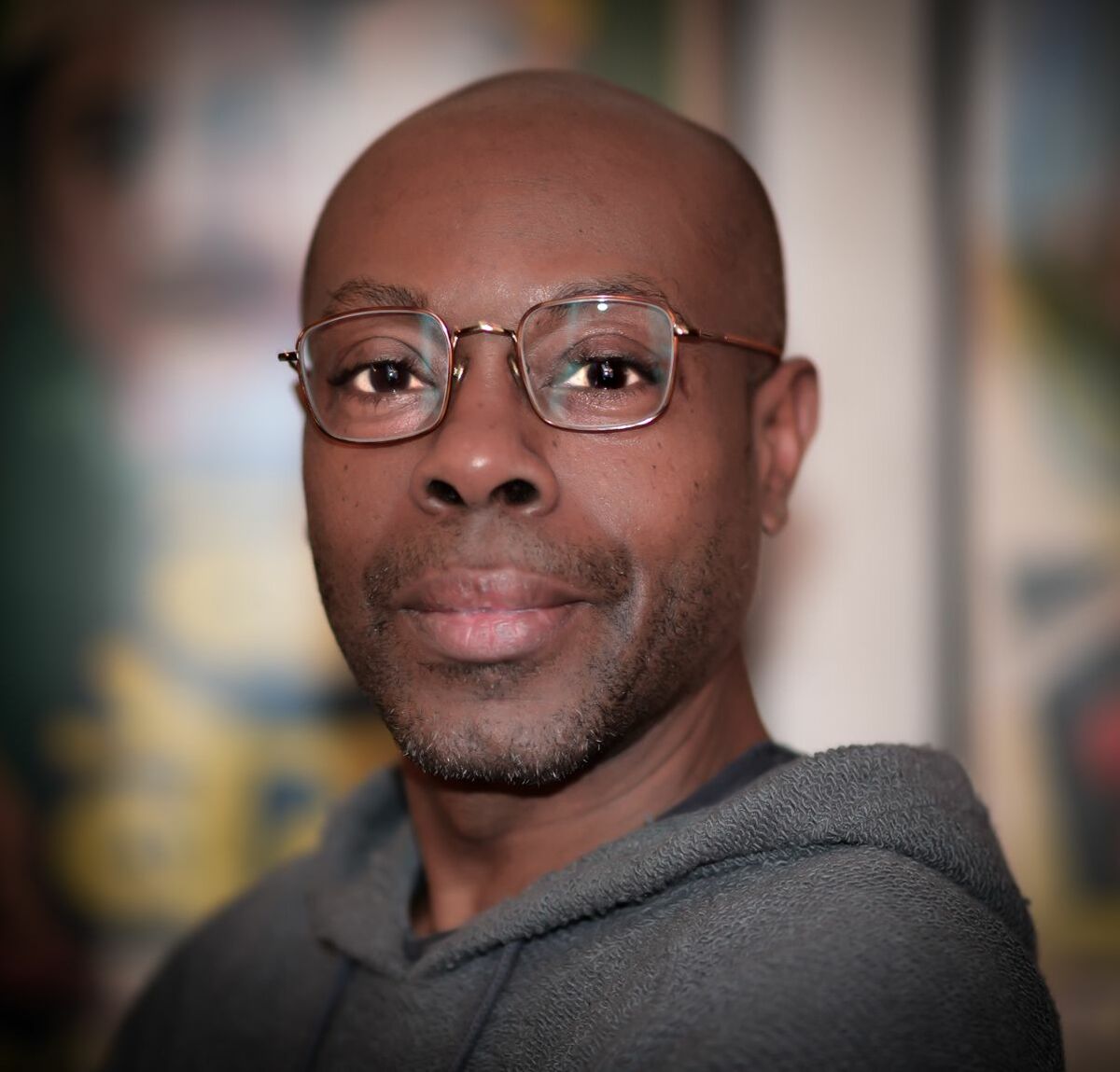 Alexander Chapman plays Bishop Bilodeau in Lilies.
Alexander Chapman plays Bishop Bilodeau in Lilies. In their rehearsals, the actors had to learn about prison culture and what life is like in prison.
“With that knowledge the prisoners are able to tell stories and make costumes and improvise props and work up little songs or little scene changes just through what would actually be in the prison,” says Chapman.
Lilies is set in the prison chapel in 1952 and there are pews that the prisoners can move around and fabric that they can make into hats and dresses.
“Part of the magic of the play is watching the prisoners turn this very small, limited environment they find themselves in into these glorious scenes of flying in a hot air balloon or being at a wedding engagement. It’s really beautiful to watch.”
The actors spent the entire first week of rehearsal learning about the prison industrial complex and how disproportionately affected communities of colour are when it comes to law enforcement and incarceration.
“Part of what I think the beauty of this cast is we’re all bringing out own real world experience to the process and then the knowledge that has been facilitated as part of the rehearsal, so when the show closes, we’re not leaving just having done a show, we’re leaving having learned something and being able to hopefully maybe possibly contribute to the movement that seeks to better these things,” says Hinds who was born and raised in Mississauaga, Ontario.
“The play itself is about an alternative form of justice,” said Chapman who noted that a lawyer came in and they talked about restorative, retributive and other forms of justice, and they also explored native tradition.
In this reimagined production, Alvis actively engages with the prison as the setting where this story unfolds, directing the cast of predominantly Indigenous and Black artists to make visible the high incarceration rates of these communities.
Alvis and their directorial team – associate director Nikki Shaffeeullah and outside eye Donna-Michelle St. Bernard – revisit the past with a new lens, incorporating critical discussions around colonialism, the justice system, and their own lived experiences into their creative vision and process.
Centring Indigeneity and diverse worldviews, the creative team brings this romantic drama into the 21st century, unearthing love, lies, and colonialism.
The ensemble of actors includes Mark Cassius, Waawaate Fobister, Tsholo Khalema Troy Emery Twigg, Joseph Zita and Indrit Kasapi with set and prop design by Jay Havens, costume design by Joanna Yu, lighting design by Michelle Ramsay, and sound design by Deanna Choi.
Speaking on the issue of colonialism, Hinds said something that was very present for him is the “very white history of the play.” He notes the fact that the play was turned into film which Greyson fought hard to cast Chapman in inspired Hinds at “a very deep molecular level” to go forth in his career, and now it has kind of come full circle in that this cast is predominantly Indigenous and Black.
“We are part of the movement that is decolonizing theatre and that’s a beautiful thing,” says Hinds.
Chapman said Black and Indigenous people were always left out of the romantic narrative until probably the film, Moonlight.
Hinds said this was Bouchard’s way of giving gay men their Romeo & Juliet, so it is a revival of the romance for gay people.
The actor said this production of Lilies is special to him not because it is the culmination of a lifetime dream but because of the combination of all the actors and the creative team.
“These are people who have been working at the top of their craft for a long time and finally we get to come together and join our forces. It’s powerful and beautiful and every second of this entire process I have just been full of love and full of respect. I go back to the word ‘surreal’ – the power feels surreal.”
Meanwhile, Chapman is appreciative because it is very rare to be in a production with such a racialized team of artists.
Neil Armstrong is a Toronto-based journalist who freelances with the Jamaican Weekly Gleaner and formerly with Pride News Magazine, and Caribbean Headline News on Rogers TV. Previously, he worked at Radio Jamaica Ltd.(RJR), CHRY 105.5 FM (now VIBE FM) and CJRT FM (now Jazz FM).
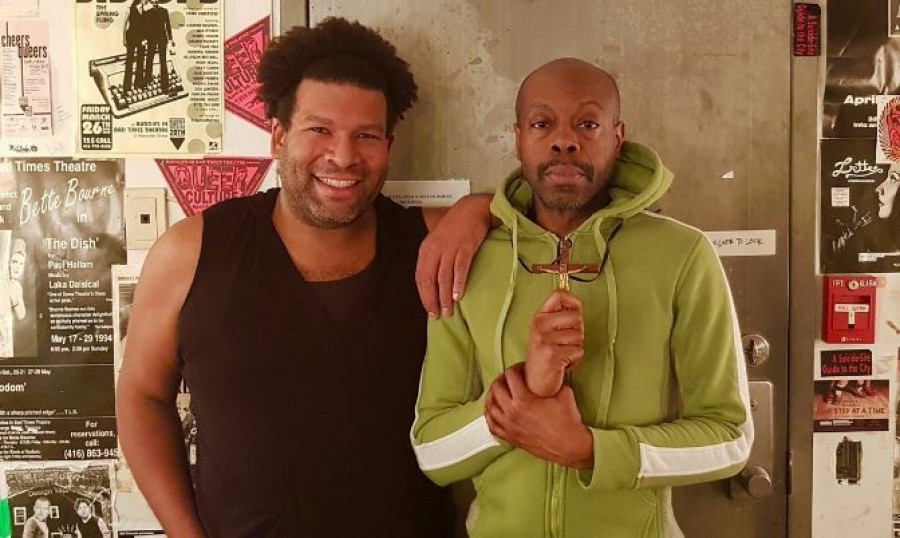
 By
By 




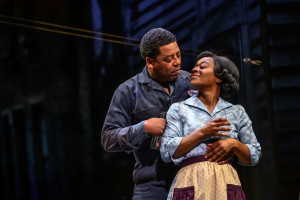
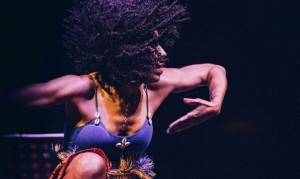
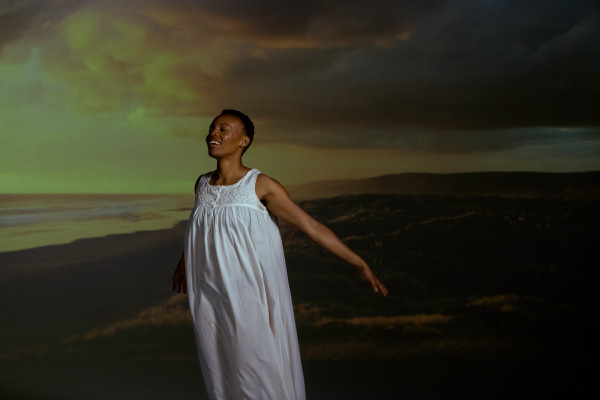
![[REVIEW] Ain’t Too Proud — The Life and Times of the Temptations Will Leave You Singing Motown Classics For Days](/media/k2/items/cache/4b41d8402a855349daa868762863cbe9_M.jpg?t=20181122_175321)
![[Review] 'Calpurnia' Flips A Classic To Leave Audiences Talking Long After The Curtain Falls](/media/k2/items/cache/93d91a0d9ac8604d953724b139da547a_M.jpg?t=20180123_194304)